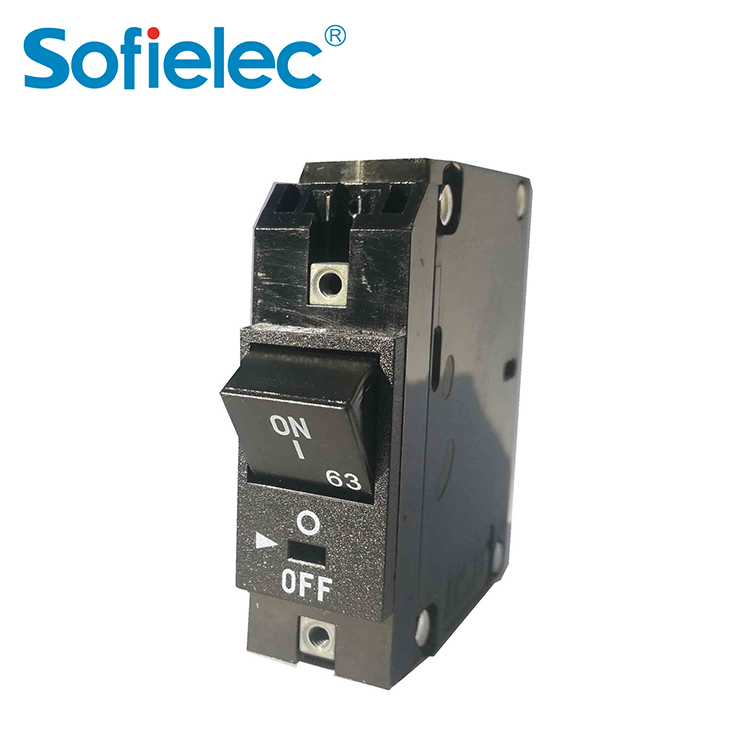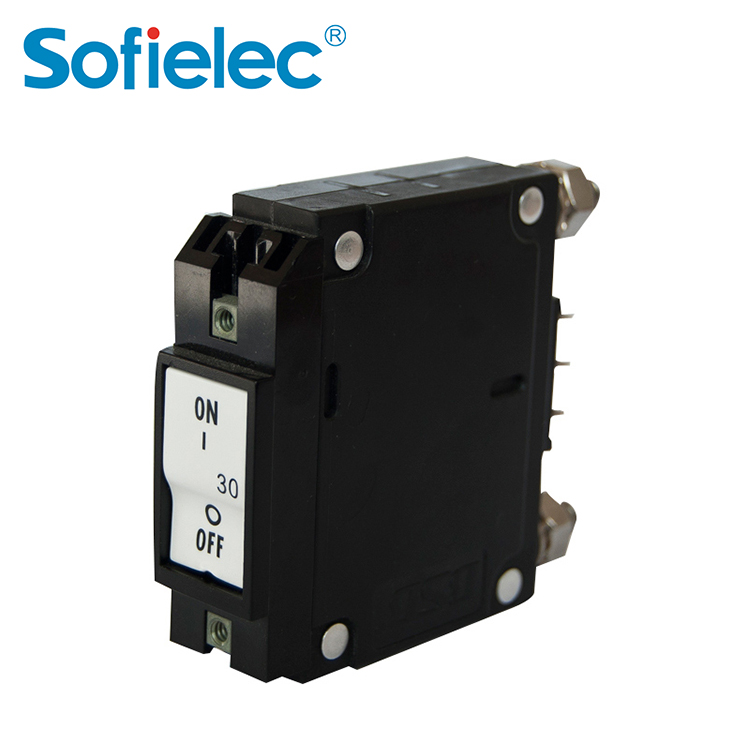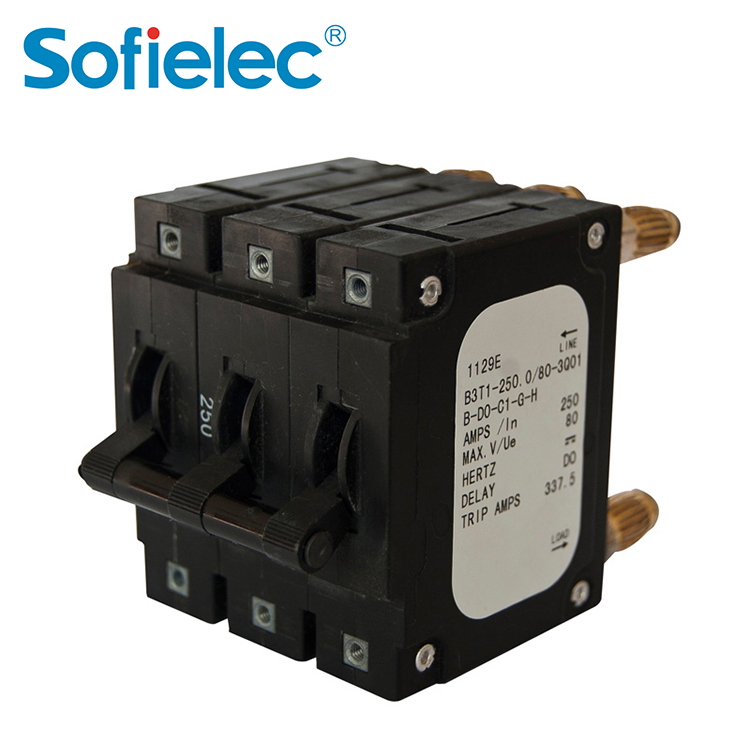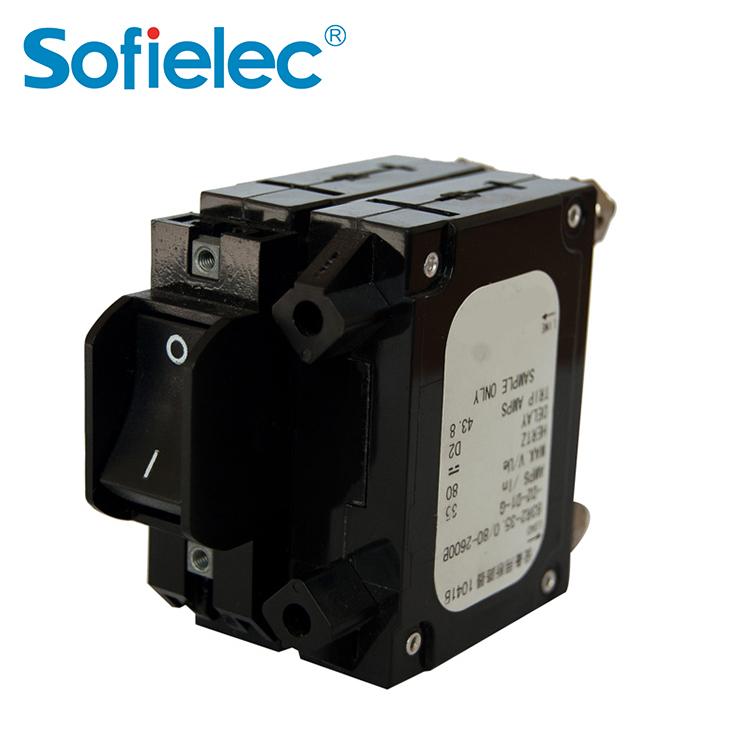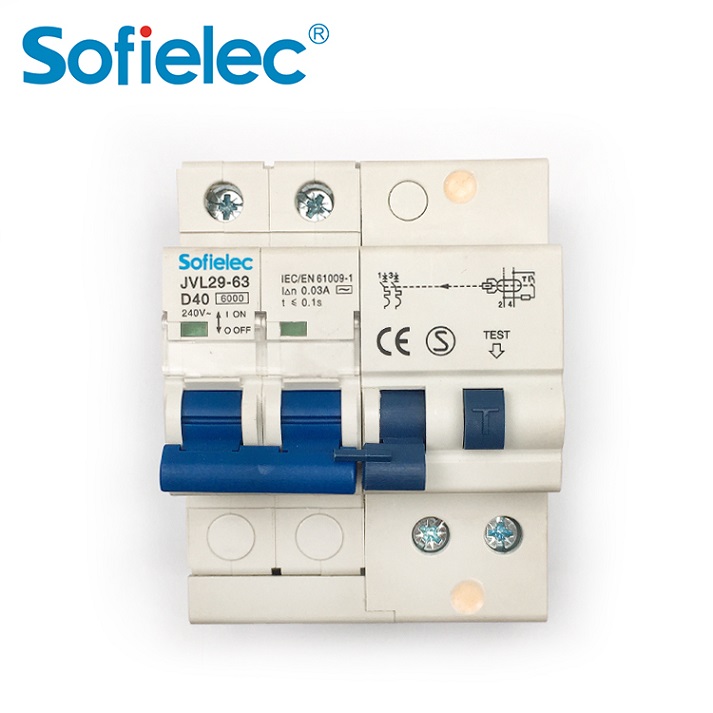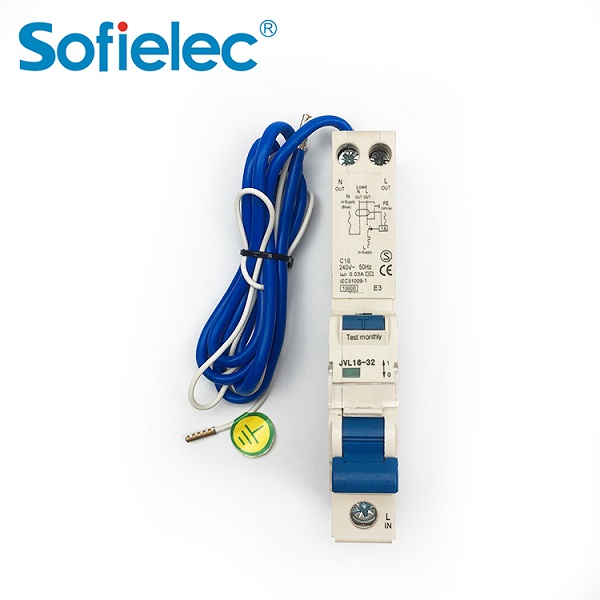| Categories | Hydraulic electromagnetic circuit breaker |
| Model | B3 |
| Maximum voltage | 480/277V AC 50/6Hz,80V DC |
| Current Ratings | 1A to 100A |
| Insulation resistance | Minimum of 100 Megohms at 50V DC |
| Operating Temperature | -40℃ to +85℃ |
| Number of poles | 1,2,3 |
| Weight | Approximately 110grams/pole |
| Agency Certifications | EN60934,UL1077,GB17701,and UL489A |
| Electrical | see table below |
| SERIES | B3 SERIES |
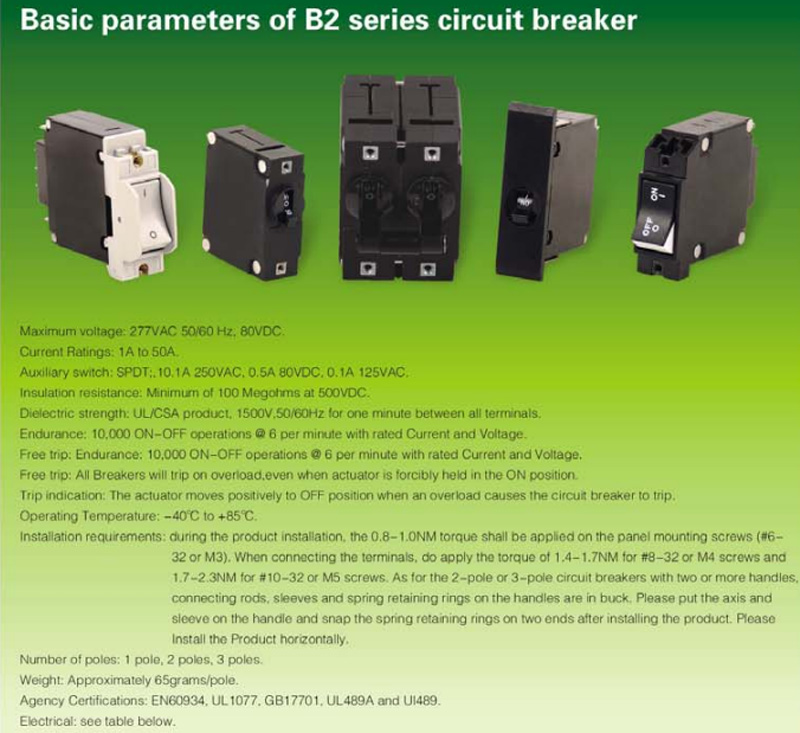
| Type | Voltage Max.Rating Ue(V) | Frequency(Hz) | Phases | Minimum number of poles | Rated Current ln(A) | Short Circuit Capacity(Amps) | |||
| UL/CSA | VDE/TUV/VVV | ||||||||
| Without Backup Fuse | With Backup Fuse | Without Backup Fuse | With Backup Fuse | ||||||
| B3 | 65 | DC | -- | 1 | 1~100 | -- | 7500 | -- | 5000 |
| 80 | 1~70 | -- | 7500 | -- | 5000 | ||||
| 71~100 | -- | 5000 | -- | 5000 | |||||
| 250 | 50/60 | 1α3 | 1 | 1~100 | 7500(1) | 3000 | -- | 5000 | |
| 270/480 | 50/60 | 3 | 3 | 1~50 | 7500(1) | 2000 | 7500 | 1500 | |
Time Current Operating Characteristics (tripping characteristics):Unit:second
| Delay Type | 1ln | 1.25ln | 2ln | 4ln | 8ln |
| D0 | No trip | May Trip | Max 0.05 | Max 0.018 | Max 0.017 |
| D1 | No trip | 0.5-6.5 | 0.1-1.2 | 0.03-0.5 | 0.004-0.1 |
| D2 | No trip | 3.0-60 | 1-12 | 0.15-2 | 0.008-0.5 |
| D3 | No trip | 70-700 | 15-150 | 2-20 | 0.018-0.5 |
| A0 | No trip | May Trip | Max 0.06 | Max 0.022 | Max 0.017 |
| A1 | No trip | 0.7-12 | 0.13-3 | 0.03-1 | 0.01-0.15 |
| A2 | No trip | 10-120 | 2-20 | 0.2-3 | 0.015-0.8 |
| A3 | No trip | 70-700 | 10-150 | 1.5-20 | 0.013-0.85 |
| H1 | No trip | 0.5-6.5 | 0.18-2.3 | 0.05-0.6 | 0.18-0.22 |
| H2 | No trip | 1.5-50.0 | 0.5-10 | 0.10-2 | 0.09-1.4 |
| H3 | No trip | 45-345 | 8.5-100 | 1.2-15 | 0.256-8.0 |
| G1 | No trip | 0.7-12 | 0.18-2.3 | 0.05-0.6 | 0.018-0.2 |
| G2 | No trip | 7.0-100 | 1.1-18 | 0.2-3 | 0.075-1.2 |
| G3 | No trip | 50-700 | 12-150 | 1.5-20 | 0.4-7.9 |
B3 Time Delay Curve
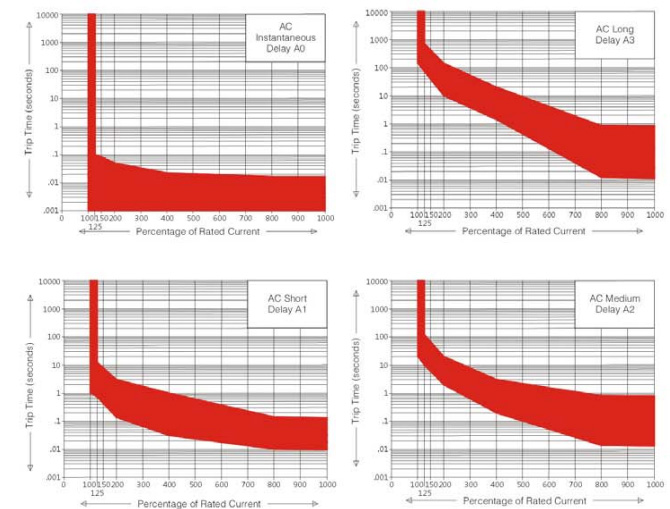
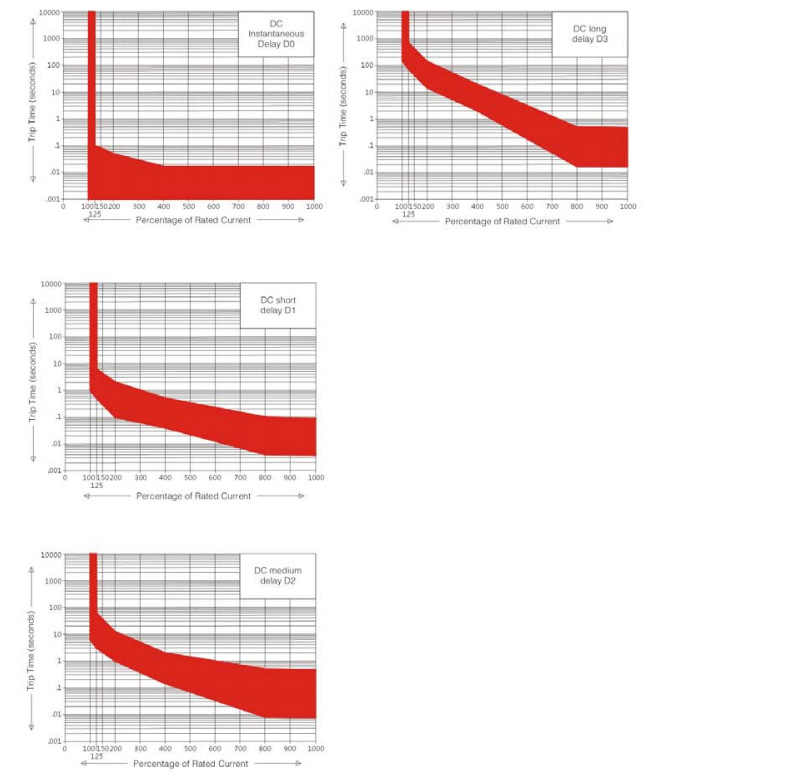
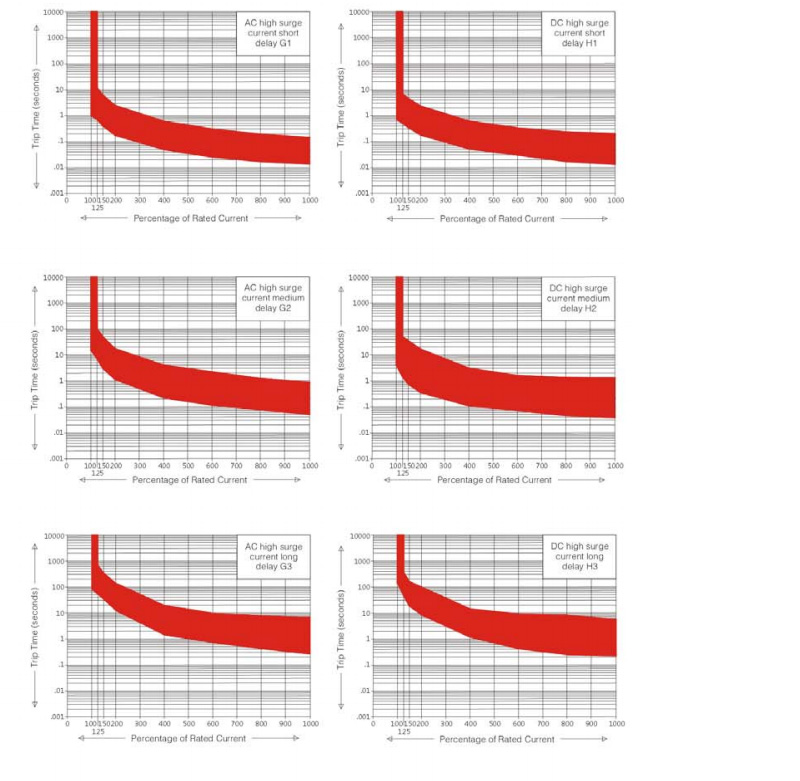
Specification of B3 series circuit breaker and code implication(for selection)
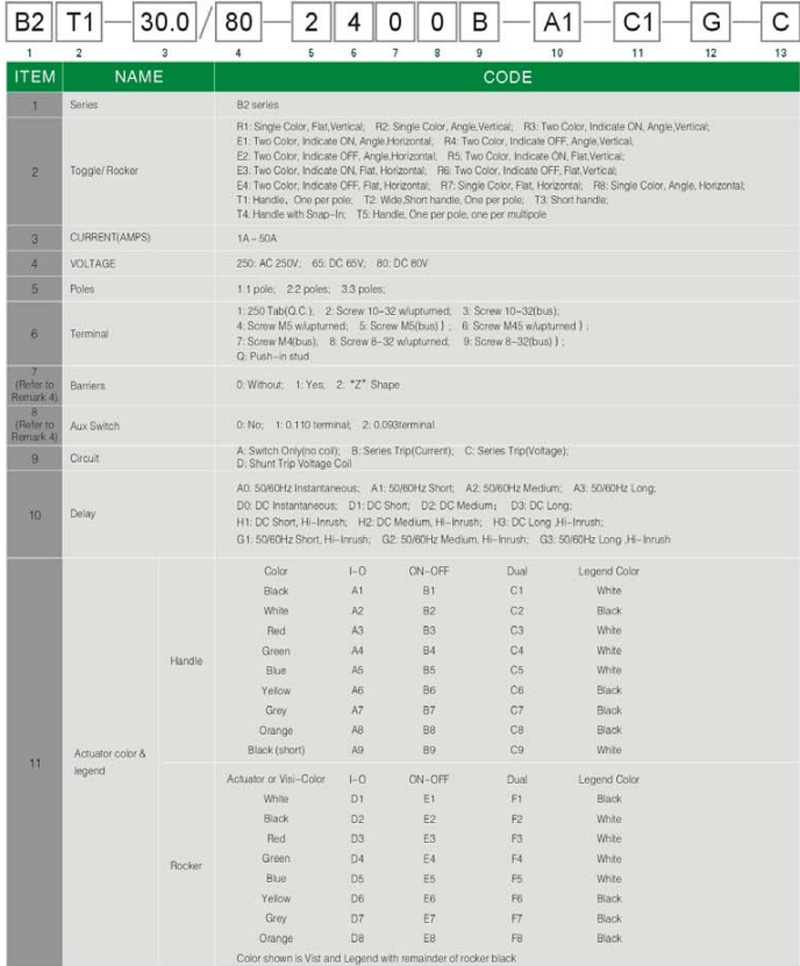

B3 Series Circuit Breaker - Form&Fit Drawings
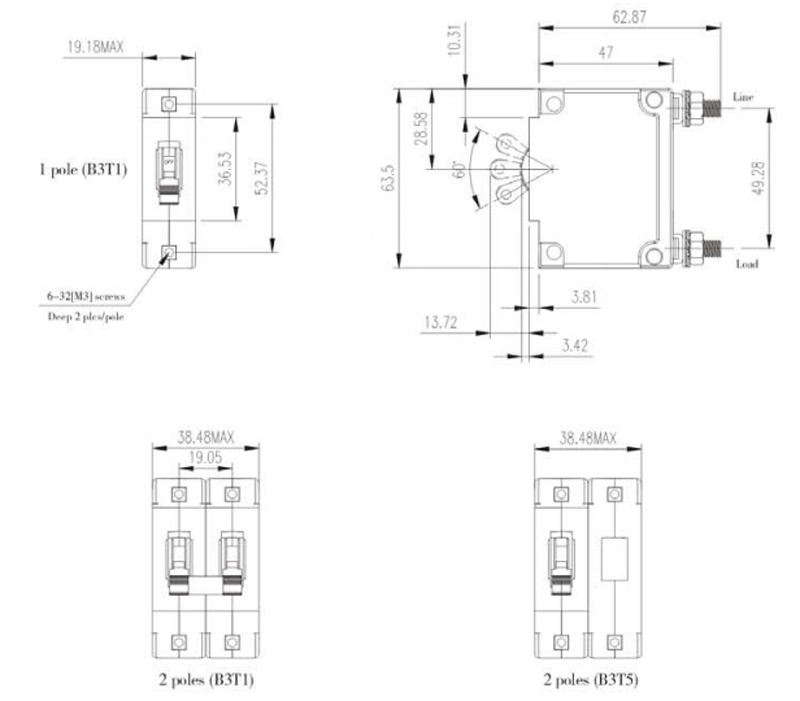
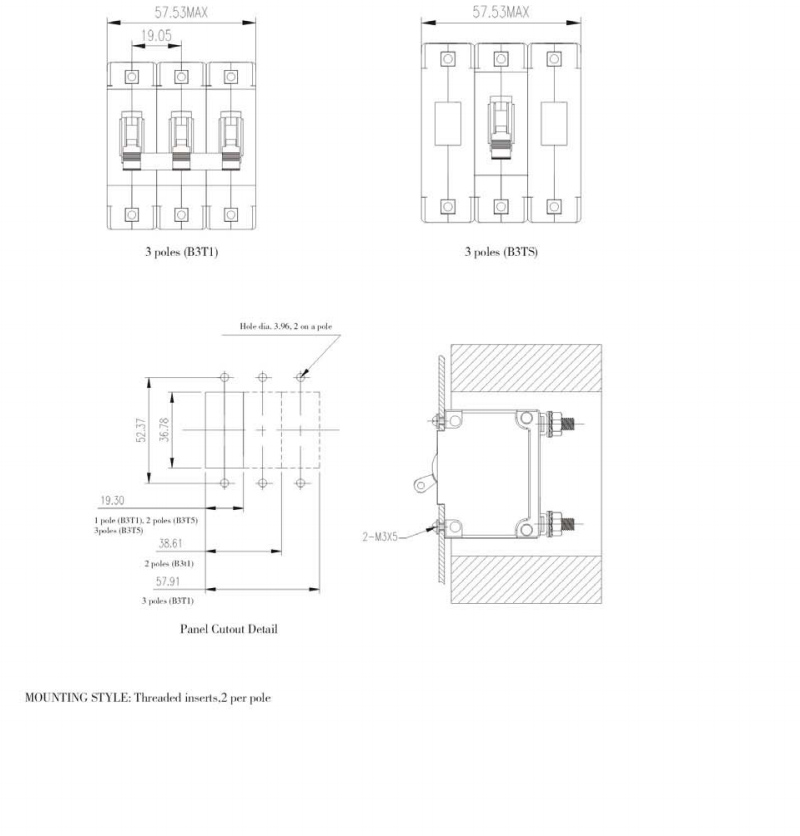
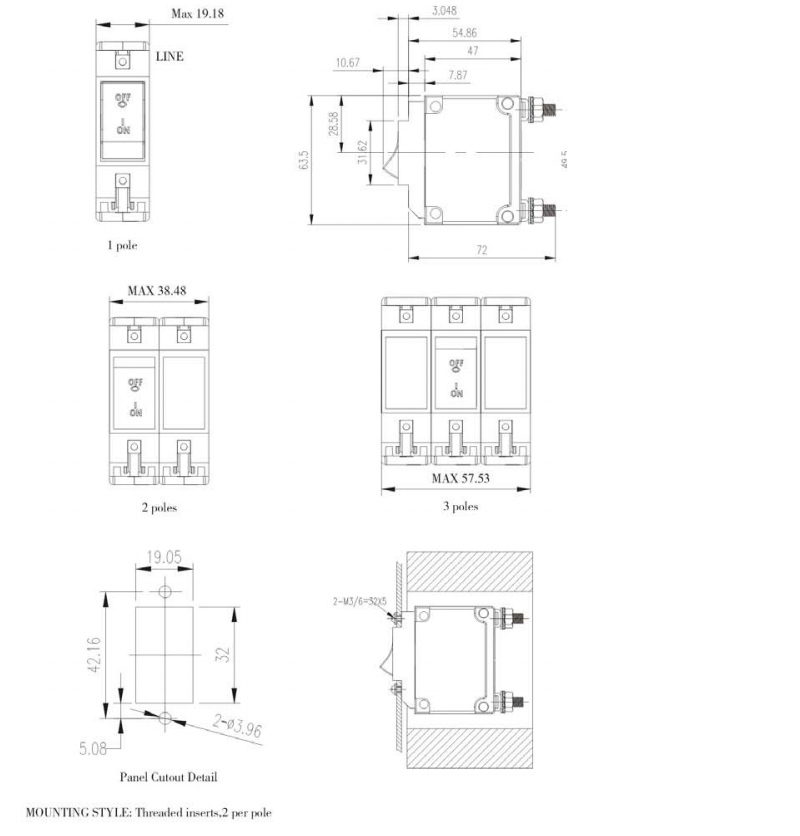
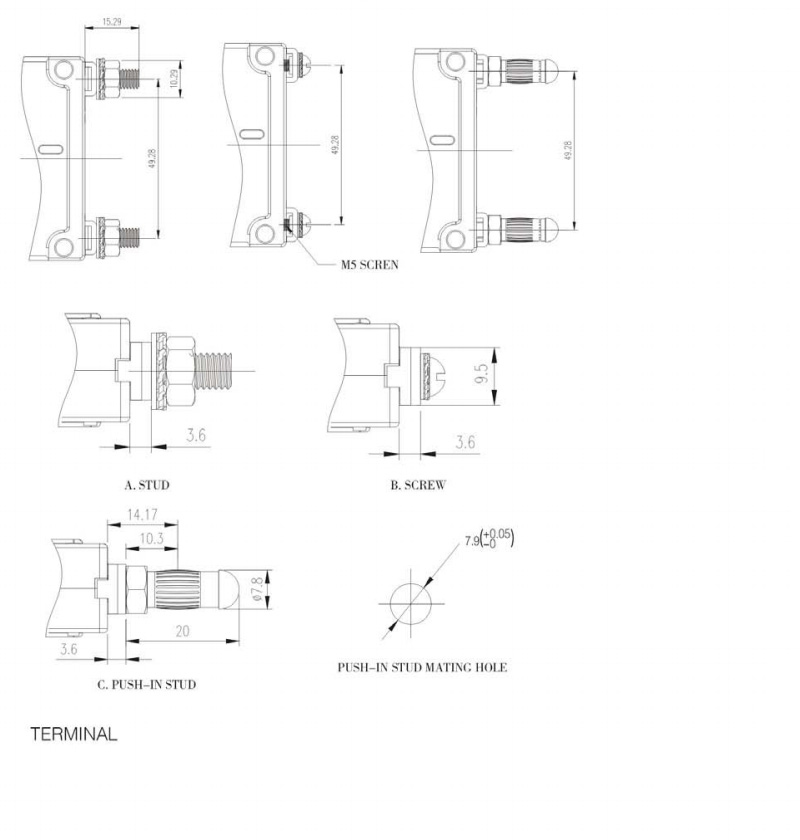
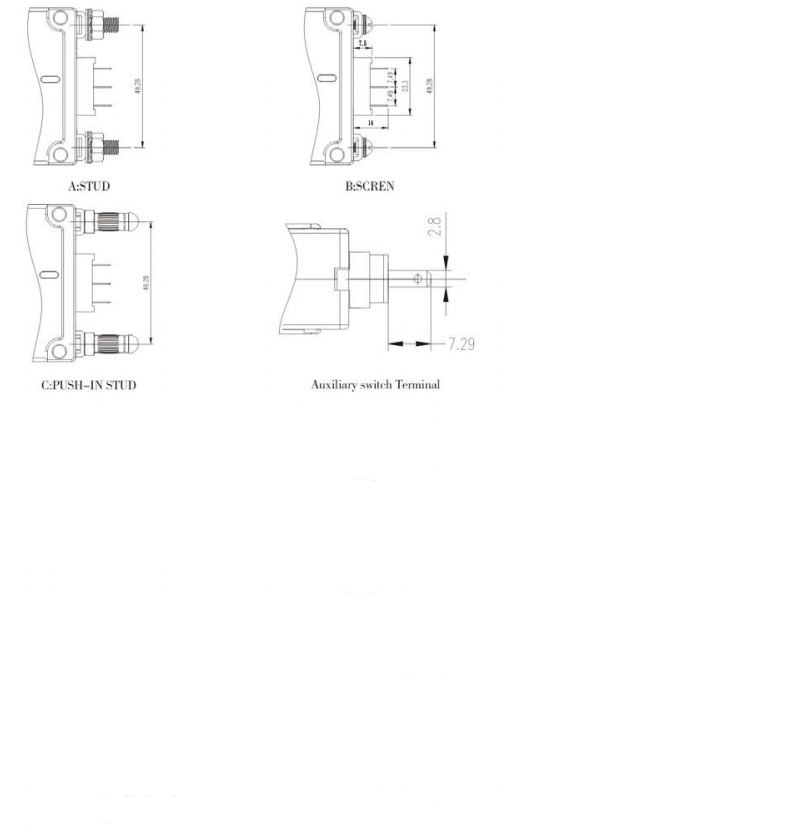
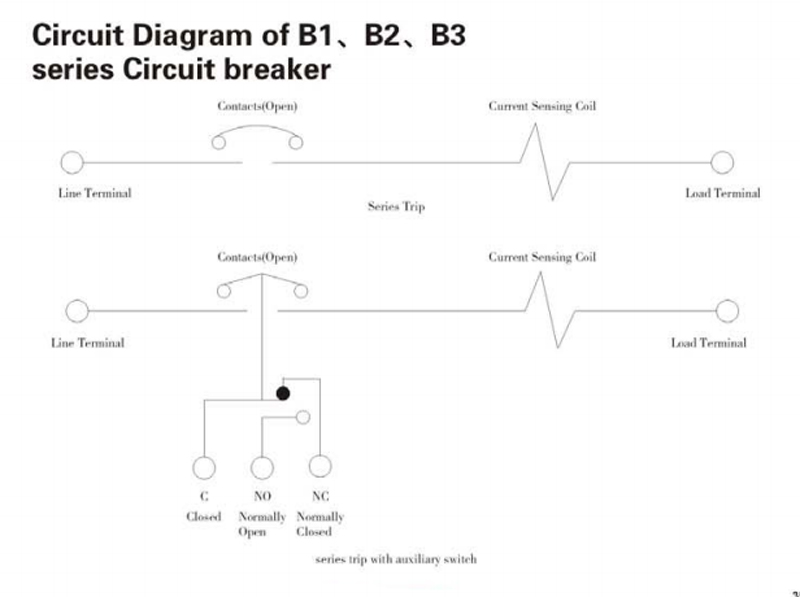
> What are the four types of timer switches?
A time switch, often simply referred to as a timer, is a device that automatically controls when an electrical circuit is turned on or off. It's like a programmable ...
> Can You Replace a 10 Amp Breaker with a 20 Amp Breaker?
Replacing a 10-amp circuit breaker with a 20-amp one without a thorough professional evaluation is extremely dangerous and poses a significant fire hazard. Let's ana...
> What Makes a Circuit Breaker Essential for Home Electrical Safety?
Home electrical safety ranks high on every homeowner’s priority list, yet many overlook the quiet workhorse that prevents crises before they start. This device acts ...
> What Scenarios Require the Use of a Residual Current Circuit Breaker?
Electrical safety is a top priority in daily life and work, yet many people are unsure when to use a device that guards against electric shock. This article explains...

